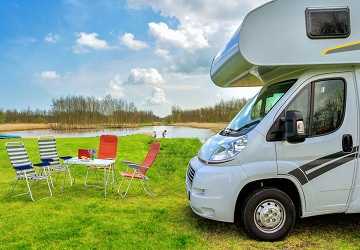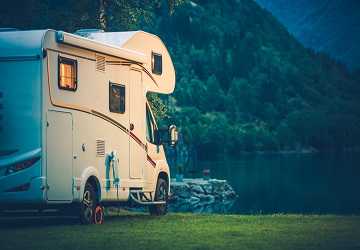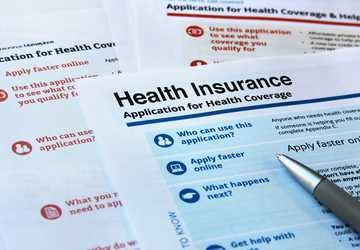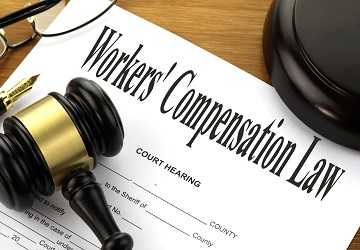The use of recreational vehicles (often referred to as RVs) has increased over time. Many people love to travel, while others live permanently in their RV. But no matter how often you use your RV, the key is to insure it so no matter where you go, your RV is safe because it's covered.
But which type of insurance should you buy? What makes one cover better than the other? Many issues can affect your mobile home insurance coverage. So it's best to check the coverage and make sure you're getting the best price possible.
RV insurance coverage: details
Like auto insurance, mobile home insurance has a variety of options. It will help if you choose the best and most suitable endorsement to fully protect your RV.
Most mobile home insurance policies cover at least personal liability. This essential element ensures you have legal and financial protection in the event of an unfortunate event or accident. Compensation will be given to cover liability if the driver is injured or the vehicle is damaged in whole or in part.

In addition, the endorsement provided by the insurance company is as follows:
·First, when looking for RV insurance, you need to consider collision coverage. In the event of an accident, comprehensive coverage will cover the entire cost of repairing the damaged vehicle, no matter who caused the accident.
·Then there is comprehensive protection. This includes repairs due to unforeseen circumstances, theft, fire, hail, accidents involving animals, non-collision accidents or vandalism.
·Third, includes roadside assistance, also known as roadside protection. This insurance provides drivers with several benefits when needed. This coverage focuses on RV repairs and repairs. Whether you have a flat tire or battery, or a sudden lack of fuel, roadside assistance is on hand to help. It will instantly send experts to your location to help you.
·Personal effects insurance covers all personal effects. It ensures you are covered if your RV is stolen or damaged.
·If you have designed your mobile home individually, eg with awnings or balconies, the accessory's permanent covering is the right choice. This coverage protects any custom accessories and ensures they are covered by the policy.
·If you travel a lot and enjoy traveling, we will cover your vacation liability. This insurance protects your RV against the risks and inconveniences that may arise while on vacation. So you can travel with peace of mind and peace of mind.
·Emergency expenses follow. If your recreational vehicle is your permanent home, then this insurance will be tailored to suit your needs. So it's useful for covering your full-time living expenses. This policy reimburses you for all living expenses in the event of a claim.
·When buying an RV, remember to ask for the true cash value of the ACV. This is the market value of your RV based on third-party sources. If your RV is less than five years old, the insurance company can replace it if it is stolen or lost.
·Finally, there is caravan insurance. It's also useful when your trailer isn't attached to any other vehicles.
With that in mind, all of these tow truck insurance policies are pretty good. So do your research and choose wisely.
How to lower RV insurance premiums?
All the premiums associated with RV insurance are expensive, especially if this is your first RV or you live in it full-time. Still, there are ways to save money. Here's how to benefit your purchase.

1. Learn about discount information
Many RV insurance companies offer various discounts to help you get lower premiums. You can also search for RV safety course offers where you have no claims on file, ongoing RV insurance and no current claims.
2. Payment in full
Sometimes you pay your annual RV insurance premium in one lump sum. This move can keep the insurance company happy and possibly give you a discount on the car with lower premiums.
3. Safe driving
A clean driving history (not including any collisions, fines or violations) has proven to be a plus point and an added bonus when applying for discounted fares or incentives. It is also clear that maintaining good driving habits not only saves money, but also ensures safe traffic conditions and safe driving habits.
4. Buy more
It is advisable to obtain multiple offers before finalizing your purchase. So shop for a stereo, talk to a representative and look for reviews online. You can find the cheapest fares in advance.
5. Add your policy
Recreational vehicle insurance providers can also offer all-inclusive packages that cover coverage for RVs, cars, and more. and residential real estate. This may also include guidance for RV owners with additional support to ensure comfort. You can increase the number of these policies to get better access to low premiums and extra benefits when needed.
Standards and rates for mobile home insurance
Calculating your RV insurance is easy, but all companies take certain factors into consideration before making a final decision. These items are listed below.
·The location of your RV. Indicates where you want to travel or park.
· Your RV type. Typically, trucks with only one camper meet other criteria with lower premiums. Tips add up when the RV has multiple features, such as a full-size RV.
·The next factor is the age of the RV you own. New RVs are good for insurance, while older RVs usually only have a standard policy.
·The type of coverage can also affect your RV insurance rates.
·Classes affect the cost of recreational vehicle insurance. This will help you determine the total cost and coverage for your RV.
·If you have higher coverage, you don't have to worry about loss, but lower coverage means you will have to rely on your own finances in the event of an accident.
·Deductibles play a large role in the amount of coverage.
·A clean claims history on file must be clean for reasonable insurance coverage. Any glitch can lower tariffs for all companies.
·A good, safe, ticket-free driving record will attract insurance companies.
RV usage directly affects coverage.
·If you are a new RV driver, you will be considered a liability. Experienced RV drivers, on the other hand, are not liable, which means insurance premiums are reasonable.
Summarize
Life in an RV is fun, but it also has its tricks. Insurance that covers all your belongings, including your RV, would be a wise decision as unforeseen circumstances can arise that cost you dearly. Also, recovery takes a long time, so good insurance will suffice.
So be sure to take your insurance with you when you travel. Buy insurance and leave all your troubles to the insurance company.


